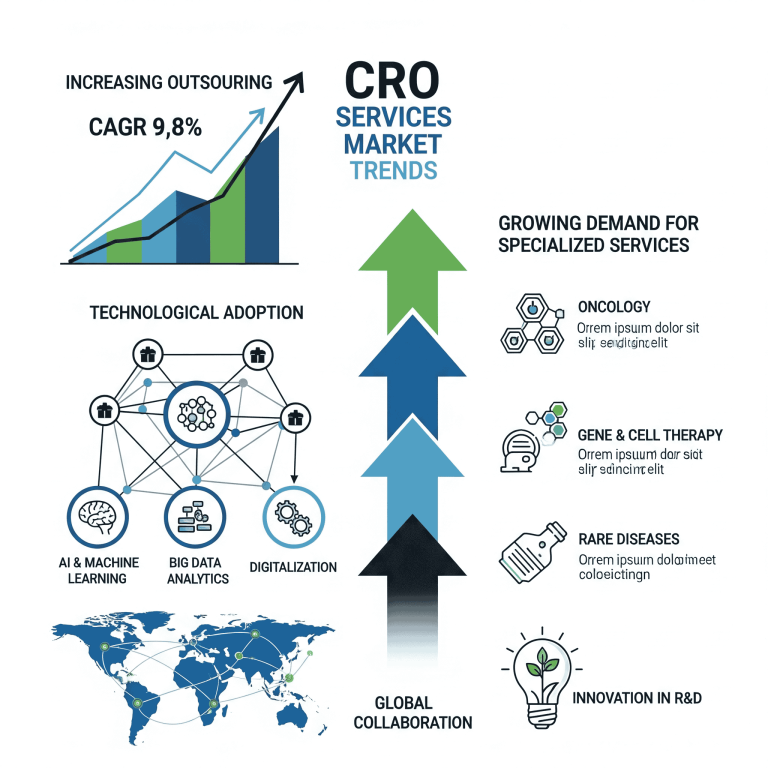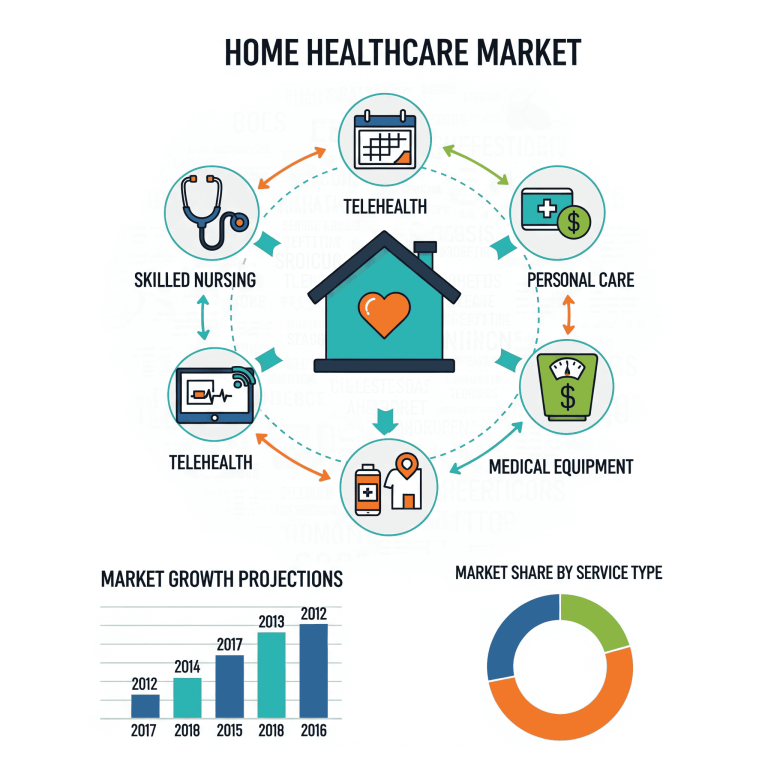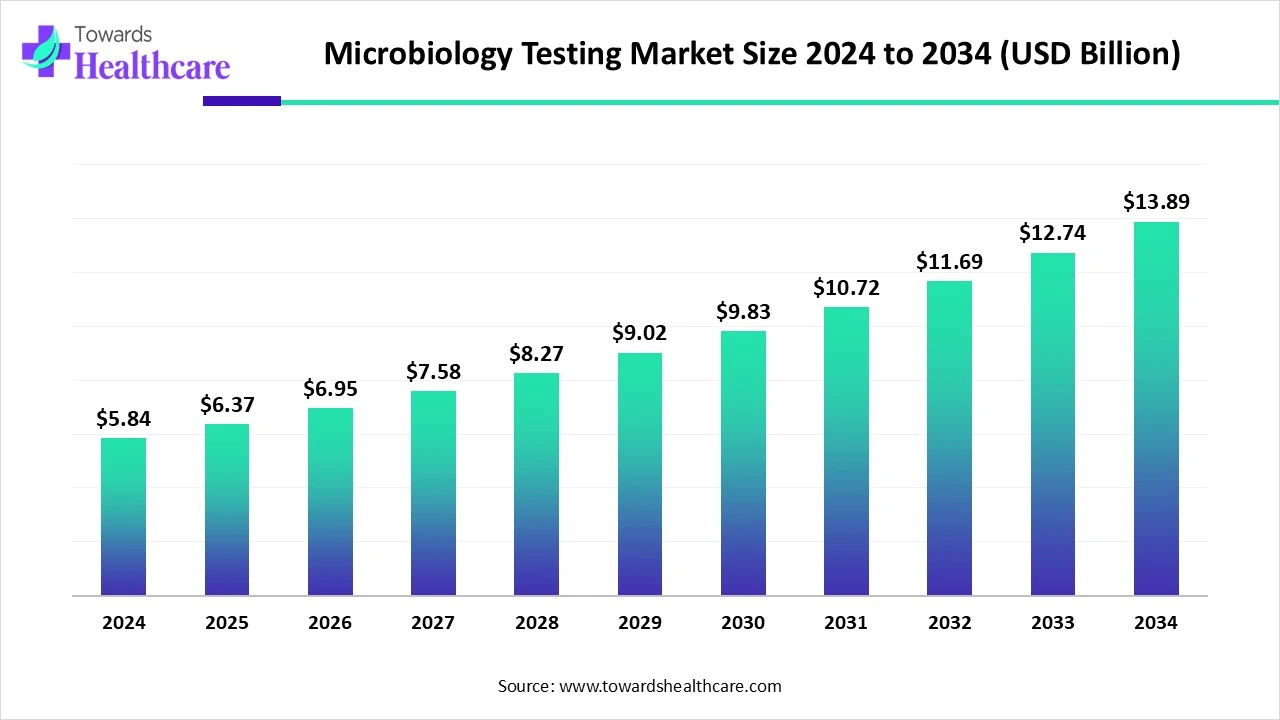
The global microcarriers market is on a growth trajectory, valued at USD 1.76 billion in 2024, rising to USD 1.96 billion in 2025, and projected to reach USD 5.21 billion by 2034. With a robust CAGR of 11.48% from 2025 to 2034, the market is flourishing due to rising demand for cell-based vaccines, biopharmaceutical production, and regenerative medicine therapies.
Market Overview
Key Market Highlights
-
Market Size 2024: USD 1.76 billion
-
Projected Market Size 2034: USD 5.21 billion
-
CAGR (2025–2034): 11.48%
-
North America Dominance: 41% market share in 2024
-
Asia Pacific Growth: Fastest CAGR between 2025–2035
Growth Drivers
-
Surge in cell-based vaccine production and biopharma manufacturing.
-
Technological advancements in bioreactor processes.
-
Increased R&D investments in cell culture technologies.
-
Rising demand for regenerative medicine in chronic disease management.
Segment Insights
By Product Type
-
Consumables dominate in 2024 (64% revenue share).
-
Equipment segment is expected to grow at the fastest rate during 2025–2035.
By Material Type
-
Polystyrene-based microcarriers held 39% market share in 2024.
-
Alginate & cellulose-based microcarriers forecasted to grow fastest from 2025–2035.
Top Companies in the Microcarriers Market
Here’s a closer look at leading companies shaping the microcarriers landscape:
1. Thermo Fisher Scientific Inc.
About: A global biotechnology product development company headquartered in the USA.
Products: Offers cutting-edge microcarriers like Cytodex and other cell culture tools.
Market Cap: Approx. $215 billion (2025).
2. Merck KGaA (MilliporeSigma)
About: A German multinational pharmaceutical and life sciences company.
Products: Provides microcarrier systems for scalable cell culture processes.
Market Cap: Approx. $110 billion (2025).
3. Cytiva (Danaher Corporation)
About: Part of Danaher, Cytiva specializes in bioprocessing technologies.
Products: Known for microcarrier-based bioreactor solutions.
Market Cap: Danaher: Approx. $190 billion (2025).
4. Corning Incorporated
About: A pioneer in materials science with focus on laboratory products.
Products: Corning Microcarrier beads for adherent cell culture.
Market Cap: Approx. $35 billion (2025).
5. Lonza Group AG
About: Swiss multinational focused on pharmaceutical and biotech manufacturing.
Products: Offers microcarriers for scalable cell therapy applications.
Market Cap: Approx. $60 billion (2025).
6. Eppendorf SE
About: German life sciences company offering high-quality laboratory equipment.
Products: Provides bioprocess systems with microcarrier support.
Market Cap: Approx. $10 billion (2025).
7. Sartorius AG
About: German provider of bioprocess solutions and laboratory instruments.
Products: Offers scalable microcarrier culture systems.
Market Cap: Approx. $30 billion (2025).
8. FUJIFILM Irvine Scientific
About: A leader in cell culture media and bioprocessing tools.
Products: Microcarrier beads designed for stem cell and vaccine production.
Market Cap: Part of FUJIFILM Holdings ($80 billion, 2025).
9. HIMEDIA Laboratories
About: Indian manufacturer specializing in microbiology and cell culture products.
Products: Affordable microcarrier solutions for emerging markets.
Market Cap: Privately held.
10. Greiner Bio-One International GmbH
About: Austrian company known for innovative lab products.
Products: Provides microcarrier-based bioprocess technologies.
Market Cap: Privately held.
11. Solohill Engineering (Pall Corporation)
About: Now part of Pall Corporation, a filtration and purification leader.
Products: Known for Solohill microcarriers for adherent cell expansion.
Market Cap: Pall is part of Danaher (see Cytiva).
12. Biotechne (R&D Systems)
About: U.S. company offering reagents and tools for biotech.
Products: Microcarrier and culture media solutions.
Market Cap: Approx. $16 billion (2025).
13. Beckman Coulter Life Sciences
About: Specialist in life sciences lab automation.
Products: Provides bioprocess instruments supporting microcarrier culture.
Market Cap: Part of Danaher (see Cytiva).
14. Repligen Corporation
About: U.S. biotech firm focused on bioprocessing systems.
Products: Microcarrier-compatible bioprocess technologies.
Market Cap: Approx. $6 billion (2025).
15. PBS Biotech, Inc.
About: Innovative developer of single-use bioreactor systems.
Products: Offers PBS bioreactors optimized for microcarrier applications.
Market Cap: Privately held.
If you have any questions, please feel free to contact us at sales@towardshealthcare.com
Frequently Asked Questions (FAQs)
1. What are microcarriers and why are they important?
Microcarriers are tiny beads used in bioreactors to grow adherent cells on a large scale. They are essential for vaccine production, cell therapy, and biopharmaceutical manufacturing.
2. Which region dominates the microcarriers market?
North America dominates the market with a 41% share, driven by advanced bioprocessing technologies and strong R&D investments.
3. What is the projected growth rate of the microcarriers market?
The market is expected to grow at a CAGR of 11.48% from 2025 to 2034.
4. Who are the top players in the microcarriers market?
Leading companies include Thermo Fisher Scientific, Merck KGaA, Cytiva, Corning, and Lonza Group AG, among others.
5. Which material type is expected to grow the fastest in this market?
Alginate & cellulose-based microcarriers are projected to register the fastest growth from 2025 to 2035.
Source : https://www.towardshealthcare.com/insights/microcarriers-market-sizing
Invest in Our Premium Strategic Solution: https://www.towardshealthcare.com/price/5841







